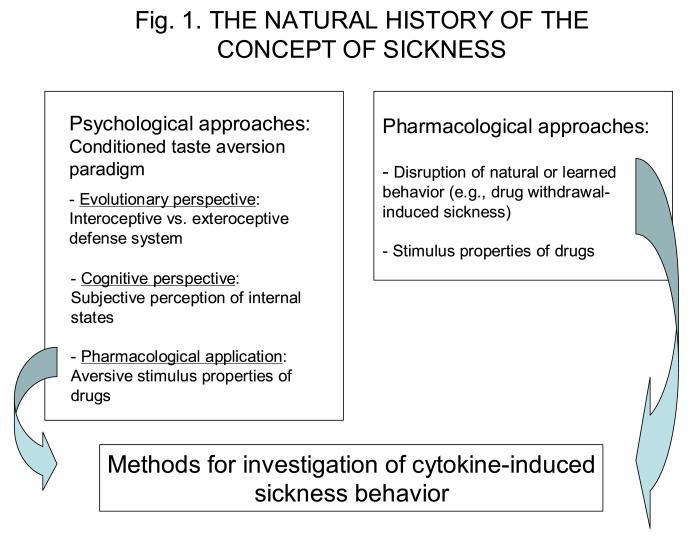Figure 1.
Psychological and pharmacological roots of the concept of sickness behavior. In behavioral sciences, the ability of animals to relate sickness and malaise to the nature of the nutrients they ingest was studied within the context of the conditioned taste aversion paradigm. This ability was further elaborated in terms of advantages during evolution and cognitive abilities. Some pharmacologists used the conditioned taste aversion paradigm for studying the aversive stimulus properties of drugs. However, this type of approach was miniscule when compared to the huge scientific and industrial investment in the systematic study of the stimulating properties of psychoactive drugs based on operant conditioning technology. The sickness-inducing properties of certain treatments were mainly quantified indirectly, via the disruption of natural or learned behavior. These two different lines of research, especially the last one, gave rise to the methodology currently used for studying cytokine-induced sickness behavior.

